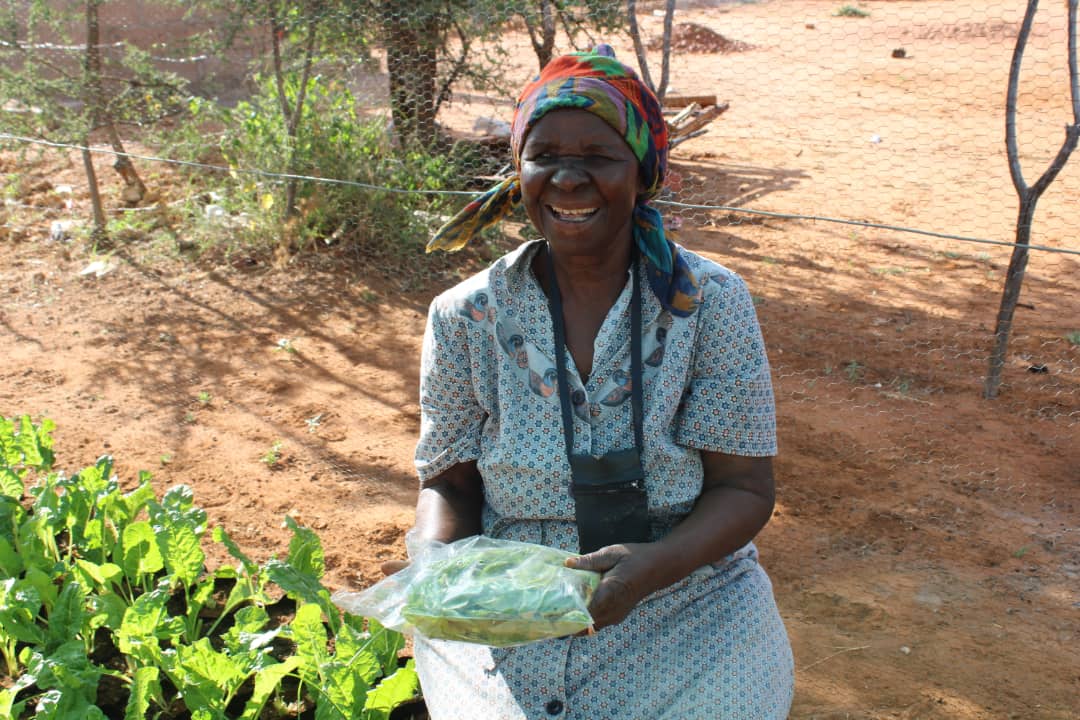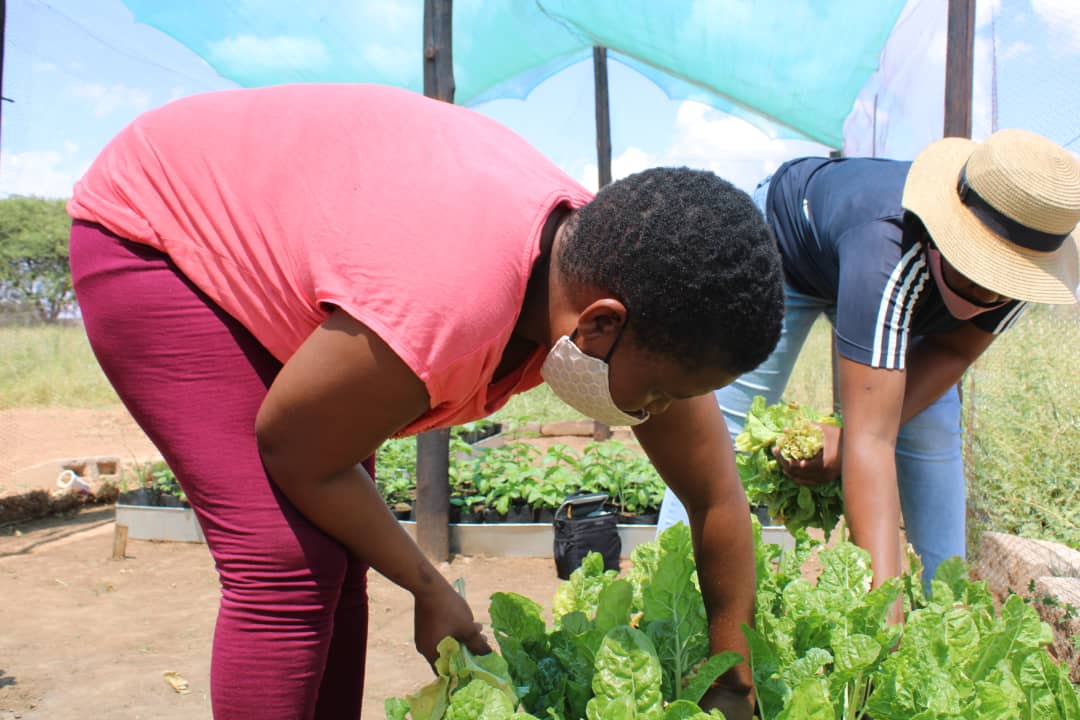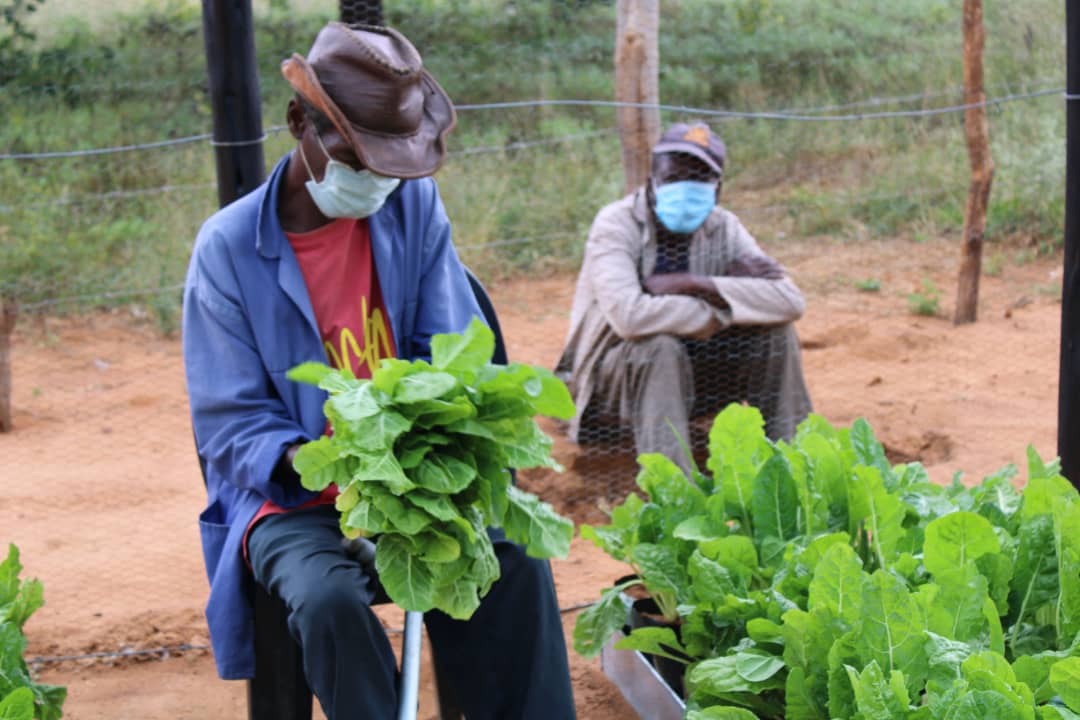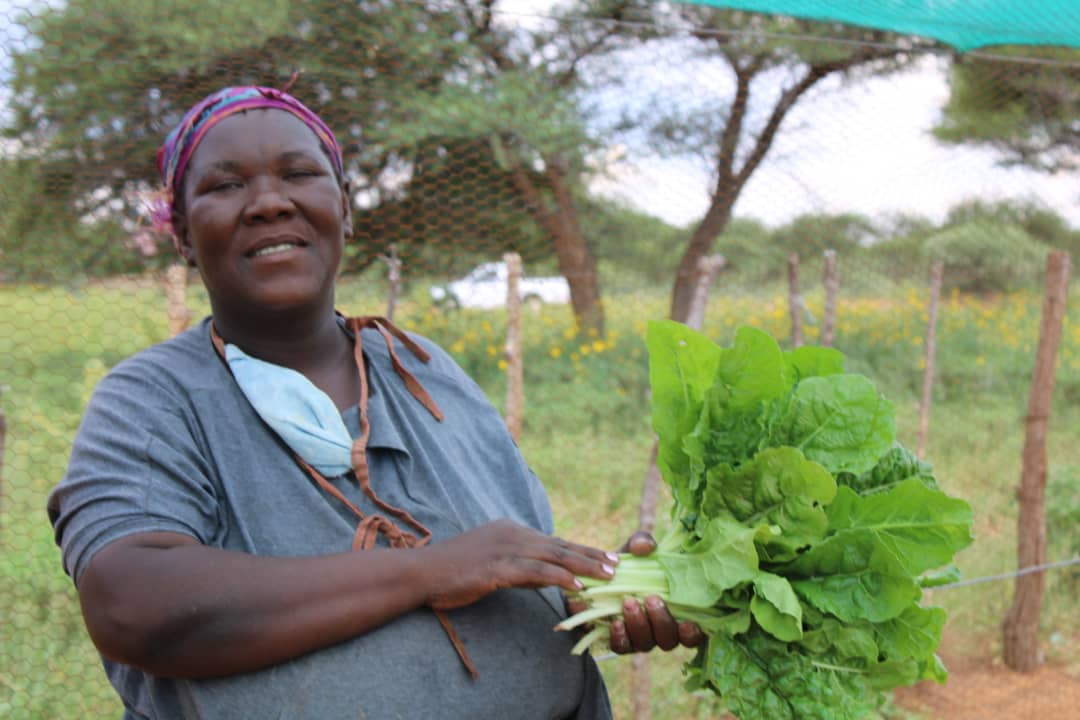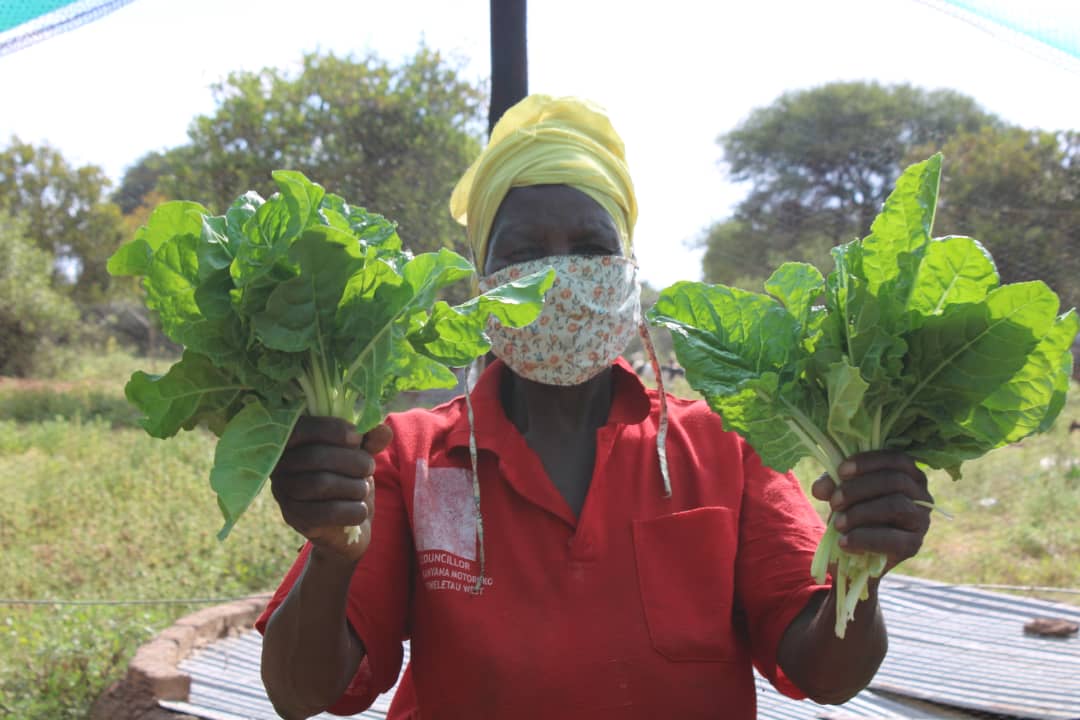The settlements of Mahetwe and Ditshukudu are about 30km from Molepolole in the Kweneng District. These are settlements are about 1 hour 30 minutes from Gaborone. Comparable to most of the rural communities in the country, local communities rely on agriculture to sustain their livelihoods. According to Kweneng District Council statistics, the district currently has about 5,300 and these are supported through the various government programmes.
In September 2020, the Global Environment Facility Small Grants Programme (GEF/SGP) implemented by the United Nations Development Programme (UNDP) approved 7 new projects at a tune of USD310,000 to be implemented throughout the country. The aim of the funded projects is to contributing towards climate change mitigation and adaption within the agriculture and energy sectors to enable Botswana to attain her climate change obligations.
One of these funded projects was the establishment of the New Earth Garden implemented by Heritage of Services Trust based in Molepolole. The project is funded at a tune of USD 47,500.00 (equivalent of BWP475,000) and is aimed at adapting to climate change using environmentally friendly horticultural methods in Mahetlwe, Lesilakgokong, Kotolaname and Ditshukudu settlements.
The New Earth Garden, is a Companies and Intellectual Property Authority (CIPA) registered utility model which uses a bottom up watering and fertilization technology that is environmentally friendly and comes with almost zero labour. The garden comes with three liquid organic fertilizers and one organic pest repellent. With the funding for the 1st phase at a tune of USD 23750 (equivalent of BWP271,438.75), a total of 14 New Earth Gardens were successfully established in Ditshukudu and Mahetlwe settlements in the Kweneng Sub-District. This is out of 28 planned gardens to be supported through this project.
As part of the project, a baseline assessment survey was conducted to establish the public perceptions on backyard gardens. This informed the project implementation throughout the project life cycle. Furthermore, the 14 beneficiaries and their 14 proxies were trained on management and monitoring of the garden. The Beneficiaries (12 old women and two old men), were selected from an existing district list of permanent destitute persons. Of the 14 beneficiaries, five of them are People With Disabilities (PWDs) to ensure an inclusive targeted interventions in line with SGP, UNDP and UN policies of promoting social including and ‘leaving-no-one behind’ in the spirit of attaining the Sustainable Development Goals.
“This project promotes a sustainable method of horticulture which is less laborious (30 minutes of light work per week) and saves water by over 90% while increasing crop yield by 300%; benchmarking on drip irrigation, which is currently considered to be the most economic watering method in Botswana”, says the Project manager; Mr Master Makore. He shared that the garden model is suitable for year round production of indigenous vegetables such as rotlwe, morogo wa dinawa, thepe e.t.c.
According to the project facilitator Ms Gorata Kelapile, “When we compare new earth gardens to planting on the ground, the yield on the is high as the capillary tray accommodates 85 plants and cases of pests infestations are low”.
The Programme supports Government priorities and actions in environmental conservation as well as driving the sustainable development agenda through supporting community led pilot projects with the potential for up-scaling and replication by the Government and other partners.

 Locations
Locations